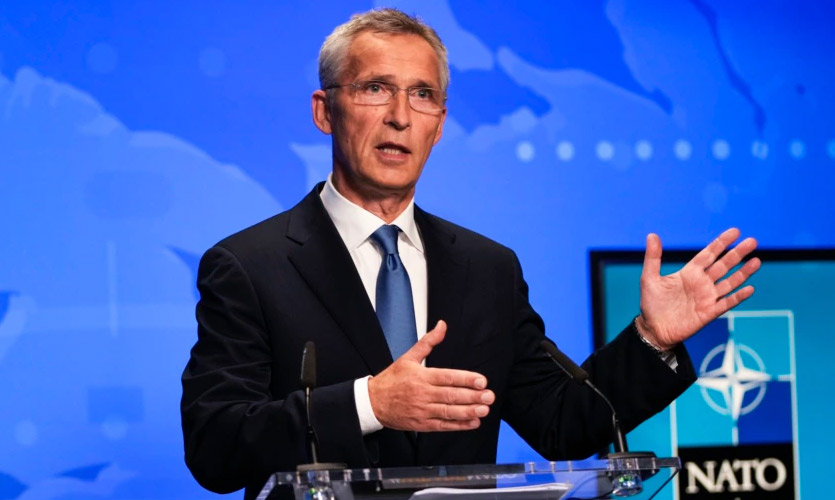More than two months after the rise of the Taliban following the hasty withdrawal of the North Atlantic Treaty Organization (NATO) forces from Afghanistan, world leaders continue to remain divided as per their regional and aspirational needs and demands.
Earlier this week on Monday, Russia suspended the diplomatic activities of the NATO office in Moscow and its permanent mission to the alliance after reportedly expelling eight Russians accused of spying. In a media briefing, Kremlin spokesman Dmitry Peskov reiterated Moscow’s stand and said, “There is no need for dialogue under these conditions and (the adoption of) such a concept by NATO confirms it once again.”
Russia’s relationship with NATO has been at rock bottom ever since Moscow annexed Crimea in 2014, and due to its close relationship with Belarus. Peskov further added, “Russia has never had any illusions about NATO. We know the nature of this alliance… This alliance was not created for peace, it was conceived, designed and created for confrontation.”
In September, Russia engaged with its former Soviet Union member Belarus in a military drill, which Ukraine has described as a threat to its security and that of NATO, also alarming the Baltic allies. In retaliation, NATO, on Thursday, agreed upon a new plan to defend against any potential Russian attack on multiple fronts, reasserting its core goal of thwarting any Russian intervention despite the growing focus on China. The confidential strategy aims to prepare for any simultaneous attack in the Baltic and the Black Sea regions that could include nuclear weapons, hacking of computer networks and assaults from space.
NATO’s Secretary-General Jens Stoltenberg put the burden of tumbling ties between Russia and NATO on the former’s head, adding that the bloc was ready to engage in a dialogue. In its defence, Moscow accused NATO of exacerbating the military-political situation near the border of Russia and Belarus.
Russia and Belarus announced their response to NATO’s actions by unveiling a new military doctrine. Russian Defence Minister Sergey Shoigu said in his speech on Wednesday that the border situation was deteriorating. He said that “military threats, political, and economic pressure from Western countries” forced Russia and Belarus to take retaliatory measures in response to the threats posed by NATO and prepare a new military doctrine of the Union State. It is planned for approval on November 4 at a meeting of the Supreme State Council of the Union State.
On the other side, NATO has also agreed upon a new defence plan to prevent any attack on all its fronts, which includes plans to approve the creation of the NATO Innovation Fund to the tune of $1 billion for advanced developments and research in areas such as artificial intelligence, big data, quantum technologies, biotechnology, hyper sound, and space.
Russia, China and Iran’s hostility against the US has always been clear and has only accentuated since the Taliban took control of Kabul. The US’ hostility against Russia, however, has become more visible following Moscow’s activities in the Black Sea and Baltic regions, which can also be seen as a threat to the security of the European nations in those regions.
Read more: Tensions Elevate Between Iran And Azerbaijan
US Defence Secretary Lloyd Austin’s meeting at the NATO ministerial conference in Brussels on Tuesday underlined the new agreements between the US and NATO in the realm of tech investments and policies, and the alliance’s key focus on China. Some eastern European allies have reportedly said that the US-China rivalry must not overshadow concerns about Russia.
When asked about China, Austin replied, “Regarding China, let me just say that… alliances like NATO are one of our greatest strengths. No other country enjoys the kinds of alliances and partnerships like we do.” He further added, “We see an increasing interest in our allies and partners [in the Indo-Pacific] to ensure the region remains free and open, and the rules-based international order remains in place.”
The West’s problems with Russia have only intensified, with the latter amassing its troops on the Ukraine border and its continuous support to Belarus dictator Alexander Lukashenko. Eastern European states have been calling on the Biden administration to not ignore the activities that threaten the Black Sea nations such as Romania, Ukraine and Georgia. Austin’s visit to these countries reaffirms the US’ continued support to the region.
Ukraine’s rivalry with Russia ever since the annexation of Crimea, the threats posed by Russia to Eastern Europe, the Chinese presence in the Indo-Pacific and other regions and its friendly relationship with Russia, the proxy war between Saudi Arabia and Iran in Yemen, the war in Syria and other developments around the globe, have all blended to produce a picture reminiscent of the cold war.










